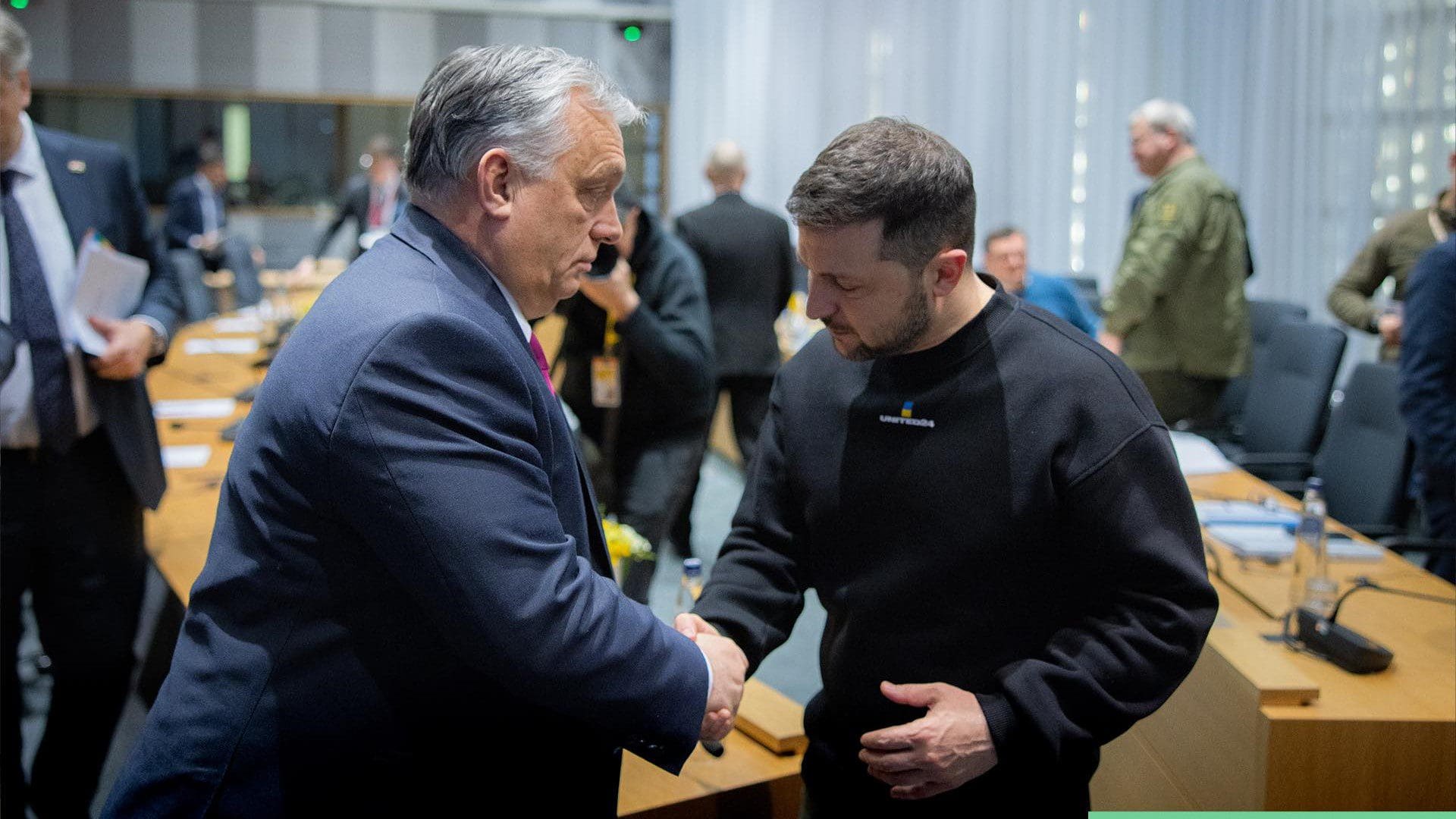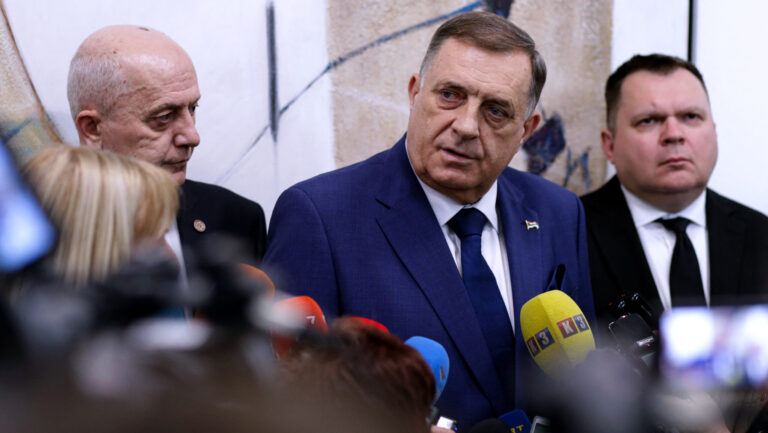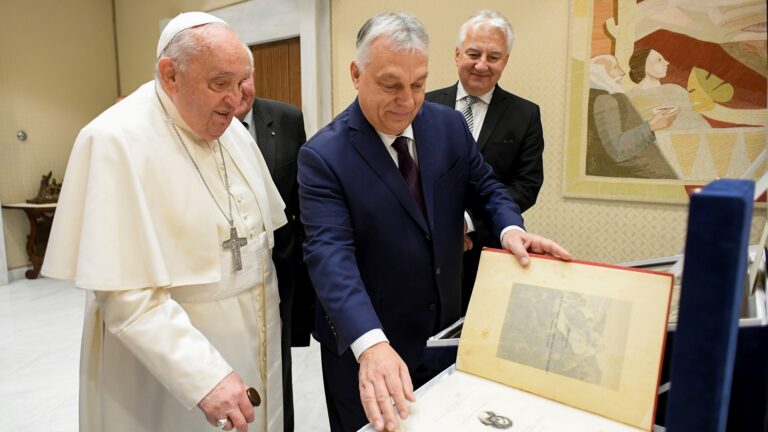Kyiv and Budapest are working hard to organize a meeting between Viktor Orbán and Volodymyr Zelenskyy, said Andrii Yermak, head of the Ukrainian presidential office. ‘We are definitely moving towards a meeting between Zelenskyy and Orbán. This will be the main task of the upcoming meeting between Ukrainian Foreign Minister Dmytro Kuleba and Péter Szijjártó,’ Yermak underlined.
Before the two leaders meet in person, a meeting of foreign ministers will take place in Uzhhorod, Transcarpathia, on 29 January. According to Yermak, the Ukrainian side aims to address the entire range of outstanding issues between the two countries during the talks on 29 January. He emphasized that constructive dialogue and negotiations are crucial, given Hungary’s status as a neighbor of Ukraine and its membership in the European Union and NATO.
The long-awaited Orbán-Zelenskyy meeting is increasingly becoming a topic of discussion in both the Hungarian and Ukrainian media.
This is indeed a sign that the two leaders will soon be sitting down at the negotiating table. At the end of December last year, Andrii Yermak published a post on the social media platform X, in which he reported that his telephone conversation with Péter Szijjártó had focused on the preparation of the Ukrainian-Hungarian summit.
Andriy Yermak on Twitter: “I had a productive phone call with Minister of Foreign Affairs of 🇭🇺 Péter Szijjártó. As a follow-up to the conversation between 🇺🇦 President @ZelenskyyUa and Prime Minister of 🇭🇺 @PM_ViktorOrban, we are working to organize a meeting between the two leaders in the near future. / Twitter”
I had a productive phone call with Minister of Foreign Affairs of 🇭🇺 Péter Szijjártó. As a follow-up to the conversation between 🇺🇦 President @ZelenskyyUa and Prime Minister of 🇭🇺 @PM_ViktorOrban, we are working to organize a meeting between the two leaders in the near future.
Earlier, Ihor Zhovkva, deputy head of the Office of the President of Ukraine, discussed the potential meeting between Viktor Orbán and Volodymyr Zelenskyy. According to Zhovkva, the talks could encompass a broad range of areas, from economic relations to trade between the two countries and the rights of national minorities. ‘We will certainly prepare for this visit, and teams will be working on it. In diplomacy, nothing better than face-to-face negotiations has been invented,’ Zhovkva emphasized.
Péter Szijjártó stated earlier that a Ukrainian-Hungarian summit only makes sense if it can yield significant results, and achieving this necessitates thorough preparation.
Viktor Orbán and Volodymyr Zelenskyy last met in an unusual location—Buenos Aires.
The two leaders traveled to the South American capital to attend the inauguration of Argentine President Javier Milei, where they exchanged a few words at the ceremony. Zelenskyy, in a video message after the meeting, described his conversation with Hungarian Prime Minister Viktor Orbán as ‘rather direct and to the point.’ Bertalan Havasi, the prime minister’s press chief mentioned that the two leaders briefly discussed Ukraine’s accession to the EU at the event.
It is important to note that this meeting occurred before last December’s EU summit, where, despite Hungary’s abstention, the 26 EU member states voted to open accession talks with the war-torn country.
Filosofía Política on Twitter: “No sé qué le habrá dicho Zelensky a #Orban 🇭🇺, pero espero que le haya dejado una cosa clara: mientras no mejore la situación de la minoría húngara en Ucrania (#Transcarpathia) no habrá concesión alguna.Asimismo, 🇺🇦 no cumple los requisitos para entrar en la UE 🇪🇺 o la OTAN 🌐. pic.twitter.com/BIm92nVN86 / Twitter”
No sé qué le habrá dicho Zelensky a #Orban 🇭🇺, pero espero que le haya dejado una cosa clara: mientras no mejore la situación de la minoría húngara en Ucrania (#Transcarpathia) no habrá concesión alguna.Asimismo, 🇺🇦 no cumple los requisitos para entrar en la UE 🇪🇺 o la OTAN 🌐.
EU leaders are currently gearing up for another summit, scheduled for 1 February, with a primary focus on the additional €50 billion in EU financial support for Ukraine. Hungary’s stance on this matter deviates from other Member States, as Viktor Orbán emphasizes that the disbursement amount should not be predetermined for four years but rather should be renegotiated annually based on current needs and capabilities.
Regardless of the outcome of the EU summit, there is much to discuss between the parties. It is crucial for Ukraine to resolve its disagreements with Hungary, especially as the war enters its third year, and the continuity of financial and military support from the US is uncertain. Therefore, Kyiv seeks the support of all European states.
The rights of the Hungarian minority in Transcarpathia are expected to be a significant part of the talks.
Kyiv amended the relevant legislation last December, restoring the rights of minorities in many areas, except for Russian speakers. State Secretary for Foreign Affairs Tamás Menczer previously noted that the new law falls short of reinstating the rights of ethnic minorities held before 2015. He added that the Hungarian government will consistently monitor the implementation of the law.
The rights of the Hungarian community in Transcarpathia have faced continuous restrictions by the Ukrainian leadership since 2015. Before last December’s amendment, the possibility of education in the mother tongue had already been taken away from Transcarpathian schoolchildren. Additionally, there have been consistent attacks on Hungarian symbols in Transcarpathia. For example, in Mukachevo, the significant Turul statue of the Hungarian community was removed from the bastion of the local castle overnight.
The tense relations between the two countries are highlighted by recent death threats received by Péter Szijjártó from Ukraine. An email sent to the Foreign Ministry’s mission in Ukraine stated, ‘Hungarians, we hate your government, which continues to do everything to make us lose the war. Do you think your minister will just come to us after the attacks on Ukraine? We do not think so. So you can expect an explosive welcome on 29 January. An armored train will not save you. We suggest that you place an order with a funeral home so that they can start making a coffin for Szijjártó to fit his height. God forgives, but the Ukrainians don't.’
In response to the threat, Szijjártó emphasized that
Hungary is eager to foster positive cooperation with Ukraine
and is actively working towards reaching an agreement in the best interests of the Transcarpathian community. ‘The Ukrainian authorities have provided assurances to the Hungarian side, ensuring that the most meticulous security measures will be implemented during the meeting.’
Related articles:








